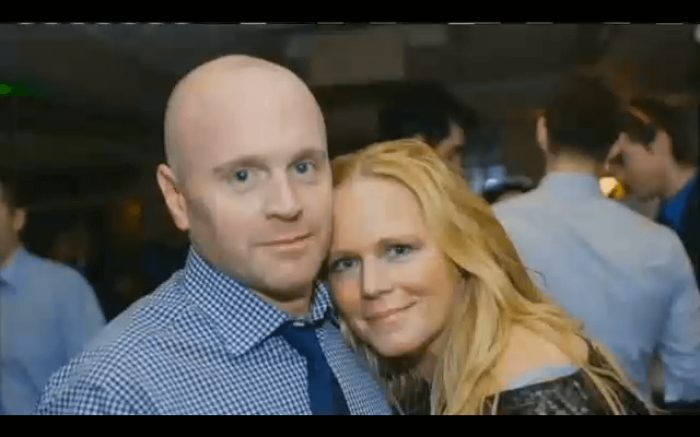Businesse magnate Marcus Lemonis has a thing for bringing new life into businesses on the brink of collapse.
He most recently played a key role in helping Crumbs Bake Shop make a hairpin turn from bankruptcy.
Now in a new episode of his CNBC show “The Profit,” Lemonis plugged the jumper cables into the struggling Staten Island restaurant, Standard Burger, to get its engines going again.
Metro spoke with Lemonis to get the lowdown on this season of “The Profit” and how we helped bring Standard Burger get back in business.
What might surprise audiences this season?
I think what’s different about this particular season is that we tried to dig a lot deeper into family and relationship issues. There’s this theme across the country that relationships are either the cornerstone of the business or the actual rubble that’s left. We found a couple of people with egos that were larger than life and [explored] how an ego can be really detrimental to a business.
While it’s on a business network, and is a business show, it really is lined with personal and relationship issues.
I get about 40,000 applications a year for people that want to participate in this show. What they’re looking for is a chance to save their business or grow their business.
What makes our show different is that I go in and write a check with my own money. It’s not a show where I go in and I change the paint or put new carpeting down. This show is really about me going into these business and immersing myself in them, working in them, becoming a partner and enforcing change. Whether that change is about the product itself, the process of how they operate their business or the people — I get my hands dirty. Was there anything you learned from working with these businesses?
No … we’ve made 30-plus episodes and the themes are usually relatively consistent, but because the characters are different it feels different.
Things that continue to surprise me are people not understanding the value of people in their business, whether those are the people that they’re partners with or the people that they work for or the people that work for them. Not understanding that [people] are the heartbeat of a business. The people that you work with or for, like them or not like them it dramatically changes the outcome for you. What was your selection criteria for selecting businesses for “The Profit?”
It was very difficult. It really requires a finite level of detail and the thing that’s most intimidating about that is that you don’t know if you picked the wrong one.
We go through the applications, and obviously, we want people to be standing members of society and what I mean by that is they pay their taxes and are somewhat honorable people.
You want to make sure that you’re dealing with a product that is relevant to the marketplace. You want to have something that people can relate to.
I look at geography, I look at types of industry and I think last and most importantly I want to do something that I’m going to like. I have to be passionate about [the business] because I’m going to write a personal check. If I don’t like it, what’s the point? Tell me about Standard Burger on Staten Island
This maybe was one of the most fun episodes that I’ve done since we started the show. It’s five guys on Staten Island who years ago started a burger business. Their product had evaporated, their relationship had deteriorated to the point of not wanting to even be around each other. This was one of those more herculean efforts because I really had to get in there and dramatically change the product, and the way they looked at each other. How often do you find yourself playing a therapist with these business owners?
In one of the episodes I joke about the fact that I’m not Oprah. I find that in any business I end up playing more than a therapist. A therapist gives advice — I don’t give advice; I give direction. I’m mandating a certain behavior, as opposed to suggesting a certain behavior. What business trend do you see on the horizon?
I think that there is a particular food concept that’s gonna continue to grow that I call QSR — ‘quick serve.’ Like the Chipotle model but for different types of food. You’re gonna see this continuous trend of people getting fast food — but healthy and fresh fast food. Can you expand on your theory of “People, Process and Product?”
I try to give people a really simple tool, for anybody whoever it may be, without business experience to go into a business and think about it like a consumer. I look at the people, process and product. Is the product something that’s relevant, something that people can relate to? I always look at process from consumer standpoint. We’ve all gone into a dry cleaners where the service was abominable and you say to yourself, “I can’t believe this dry cleaner stays in business.” The last thing is the people side of things. How do you do business with people you don’t like? How do you do business with people who don’t respect their employees. At the end of the day I can go into a company with an average product and an average process and if I like the people I’ll do a deal. The people are really the litmus test for me more than the level of profitability or the success of the product.
You helped Crumbs come back to business. Whats your favorite and least favorite cupcake flavor?
I like them all. I would say the ones I like the least are probably something that’s very simple like a plain chocolate or a plain vanilla. I like things with a lot of stuff on it.
The Profit airs on Tuesdays at 10pm ET/PT on CNBC.
Matt Lee is a Web producer for Metro New York. He writes about almost everything and anything. Talk to him (or yell at him) on Twitter so he doesn’t feel lonely@mattlee2669.















